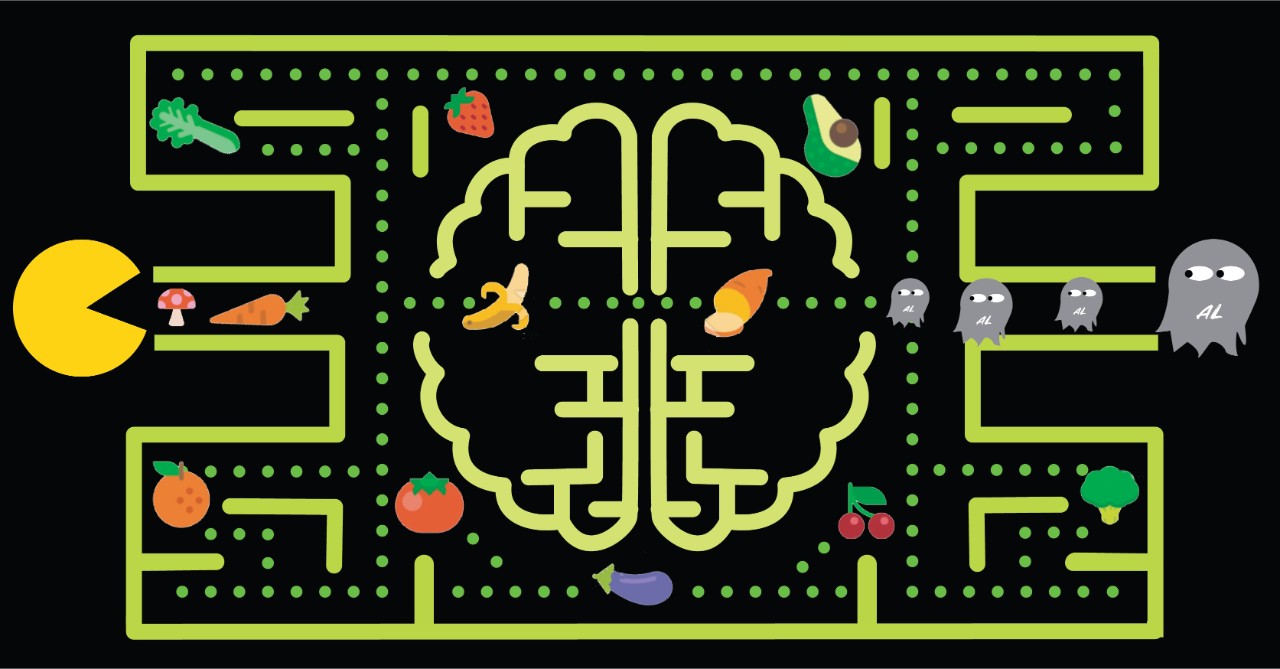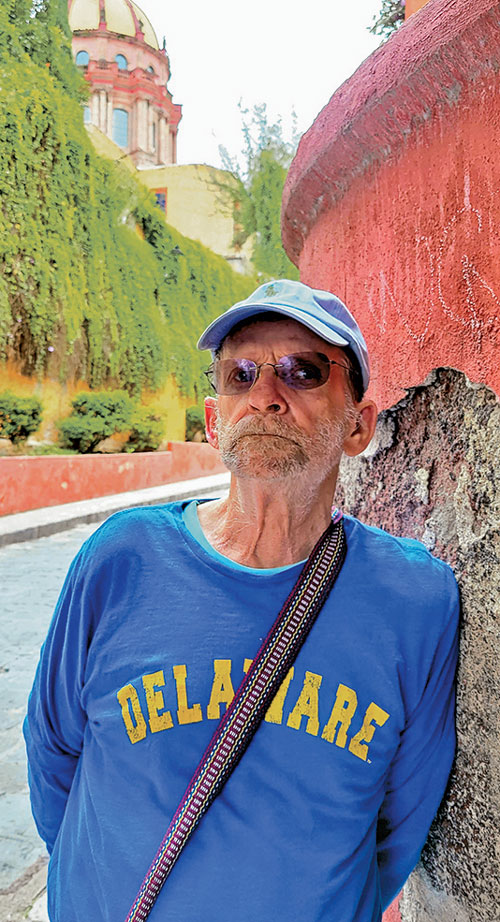


Let Food Be Thy Medicine
UD alumnus and Alzheimer’s patient credits changes in diet and lifestyle with recovery
July 07, 2022
The first obvious clues of Frank McNear’s cognitive decline began in 2009. Until then, his commercial painting company in St. Croix had enjoyed decades of continuous growth and profitability. Now, he was underbidding all projects and losing revenue. Something he had excelled at for years was a skill suddenly lost. It took three more years for his haziness to turn into early on-set Alzheimer’s.

After his diagnosis, McNear, AS71, moved with his wife, Pat, to a town he had been visiting since he was 19, essentially “to die,” he says. “I thought I had seven years, max.”
But it was there, in San Miguel de Allende, Mexico, that McNear overheard a conversation about a doctor who helped reverse several cases of Alzheimer’s. He investigated the case study further and discovered that two of the patients sounded exactly like him, with similar experiences of forgetting how to navigate their hometowns and not recognizing people they had known for years.
This was a turning point for McNear, who had started writing a book about his descent into dementia, which, admittedly, got quite depressing. But after hearing about neurologist Dale Bredesen, an international expert on aging and former director of UCLA’s Easton Center for Alzheimer’s Disease Research, he started believing in a happier future.
Bredesen is best known for a protocol of dietary supplements and lifestyle changes that claim to prevent or reverse cognitive decline, and he has drawn media fanfare and acclaim from health gurus, along with criticisms that his research is costly and offers limited evidence. (UD Magazine shares McNear’s personal story as an interesting alumni perspective, not as an endorsement for treatment.)
After getting in touch with Bredesen, McNear learned that the medical doctor had isolated 36 factors associated with dementia, including stress, diet, mold exposure, other environmental inflammations and lack of exercise. For McNear, Bredesen recommended a strict diet, improved sleep habits, regular exercise and dietary supplements—no pharmaceuticals. These included COq10, fish oil, coconut oil, methylated B12, vitamin D3, zinc, alpha lipoic acid, citicoline, probiotics and ashwaghanda.
“You have to avoid sugar and processed food like the plague,” McNear says of the inflammation-causing substances, adding that Bredesen believes inflammation is the primary cause of Alzheimer’s, and refined sugar is a leading cause of inflammation. “My diet is low in carbs and high in healthy fats,” McNear continues, “but it isn’t really a diet. It’s just a healthier way to eat.”
In a few months, McNear felt more mental clarity, but also lost a lot of weight. A consequential attempt to restore five pounds would ultimately send him into a cognitive relapse.
“I bought eight giant cinnamon rolls and licorice sticks,” he recalls. “I stopped taking the vitamin supplements, too. Then, mentally, I got to the point where I couldn’t hold a thought in the time that it took to walk across a room. If I wanted to say something to somebody, I would yell it at them before it left my mind.”
This episode further reinforced the dietary and lifestyle-changing effectiveness to McNear.
“Dr. Bredesen is convinced that there is no such normalcy about memory loss due to aging,” he says. “If your memory is bad, you have a problem. It’s not because you’re old. It’s because of how you’re living, what you’re exposed to.”
Today, McNear dines with friends several times a week. At 73, he walks 25 to 30 miles a week and cares for an elderly German shepherd and a “contrary” miniature parrot. He received a perfect score on his most recent cognitive test, a drastic improvement from the 35th percentile he was at several years ago.
“I feel my memory is as good or better than most people I know at my age,” he says, admitting that stress can have a negative effect on memory, but “nothing like before.”
McNear has also finished his happy-ending book, Defeating Dementia: My Story of Recovery from Alzheimer’s, along with two more. His case was also included in Bredesen’s latest book, The First Survivors of Alzheimer’s.
“I wrote my books because I wanted to help people avoid problems,” he says. “I feel like
I owe it to the universe, like I’m getting extra time to help
others.”
NOTE: This story about Frank McNear’s health journey is his own. His perspective is not a substitute for a medical professional.
Contact Us
Have a UDaily story idea?
Contact us at ocm@udel.edu
Members of the press
Contact us at 302-831-NEWS or visit the Media Relations website


